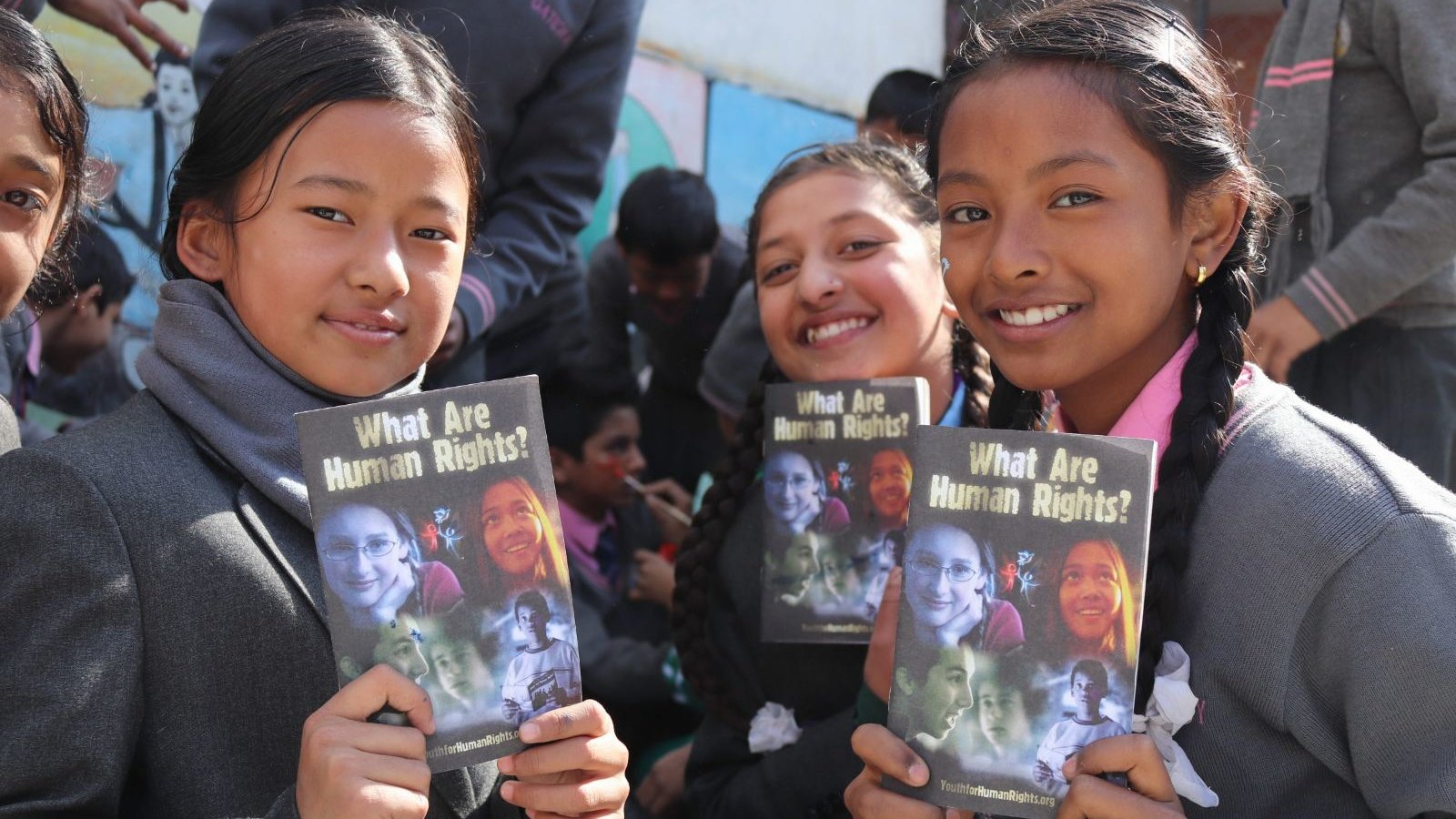Education Is a Human Right
The world celebrates the 4th International Day of Education today, reminding us that education is essential both for lifting people out of poverty and for unlocking each person’s full potential.

According to Article 26 of the United Nations Universal Declaration of Human Rights (UDHR), “Everyone has the right to education,” no matter their background, creed, color or gender.
Although the United Nations adopted the Universal Declaration of Human Rights in 1948, today more than 258 million children and youth are not in school. Fewer than 40 percent of girls from sub-Saharan Africa complete lower secondary school (grades 6 through 9). Some 617 million children and adolescents cannot read or count.
Lacking these skills, they are also denied many other rights such as decent work conditions and wages, the opportunity to support their families and the knowledge they need to demand equal justice under the law.
Youth for Human Rights International believes that human rights education is the key to making the right to education and all 30 human rights a reality—because those who understand the rights enshrined in the UDHR will demand their own rights and will defend and protect the rights of others. Youth for Human Rights volunteers work with government bodies and civil society to make human rights education mandatory.
One example of their advocacy is Costa Rica, where an estimated 8 percent of children have no access to education and 65 percent of girls do not finish high school.
These statistics plummet when describing the country’s indigenous people. In these communities, 30 percent are illiterate. And on average, indigenous children receive only 3.6 years of schooling.
Working with Costa Rica Legislative Assembly Deputy Jorge Luis Fonseca Fonseca, Youth for Human Rights helped accomplish an important milestone for Costa Rican children. Mr. Fonseca spearheaded a bill mandating human rights education in schools throughout the country, which was passed into law in August 2021.
“We believe that we have made a great contribution to the Costa Rican education system,” said Fonseca. “Youth for Human Rights International took the initiative. Now young students will know which rights are theirs simply because they are human beings.”
In December 2011, the UN General Assembly adopted the resolution, United Nations Declaration on Human Rights Education and Training, which reaffirms that “every individual and every organ of society shall strive by teaching and education to promote respect for human rights and fundamental freedoms.” And it calls on member states to “implement human rights education and training, such as through its integration into school and training curricula.”
Youth for Human Rights International acknowledges all governments, lawmakers, NGOs, educators, human rights activists and volunteers who are working to make human rights education a reality, with special thanks to its main sponsor, Church of Scientology International, for enabling them to provide their secular human rights educational materials free of charge.
For more information, visit the Youth for Human Rights website at www.youthforhumanrights.org.

